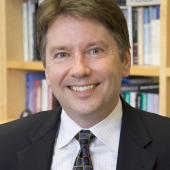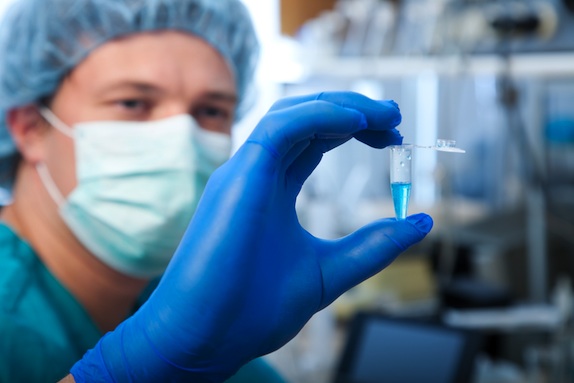
Dean of the College of Chemistry and Professor in the Department of Chemical and Biomolecular Engineering at the University of California, Berkeley, Douglas Clark will be presenting the SBE'S James E. Bailey Award lecture, November 18, 2014.
The Society for Biological Engineering's Bailey award endowed by Cytos Biotechnology recognizes outstanding contributions in the field of biological engineering. In memory of Professor James Bailey for his many pioneering contributions to biotechnology, this award is presented to an individual who has had an important impact on biological engineering and whose achievements have advanced the profession.
James Bailey's educational legacy touched many modern biochemical and biological engineers in the profession today. The award is presented to an individual who embodies the spirit of James Bailey, one that is a pioneer, a mentor, an innovator, an integrator of biology and engineering, a teacher, and whose achievements have provided a major impact to the field of biological engineering.
Clark’s lecture, entitled “A Personal Perspective on Biotechnology’s Progress in a Golden Era
(and how Jay Bailey saw it all coming),” will highlight pertinent accomplishments from our group in these areas and show how many of them can be traced back to the influence and foresight of Jay Bailey.
Douglas S. Clark is currently Dean of the College of Chemistry and Professor in the Department of Chemical and Biomolecular Engineering at the University of California, Berkeley. He is also the Co-Director of the Synthetic Biology Institute, Faculty Scientist at Lawrence Berkeley Laboratory, and holds the endowed G.N. Lewis Chair. Prior to his appointment as dean, Clark served as Department Chair of Chemical and Biomolecular Engineering and Executive Associate Dean in the College of Chemistry. Clark has been a faculty member at Berkeley since 1986. He received his Ph.D. in Chemical Engineering from the California Institute of Technology in 1983 and a B.S. in Chemistry, Summa Cum Laude, from the University of Vermont in 1979.
Professor Clark is a leader in biochemical engineering, with particular emphasis on enzyme technology, biomaterials, and bioenergy. Underlying these general topics is a longstanding interest in extremophiles and extremophilic enzymes. His work in biocatalyst engineering has created new opportunities for the application of enzymes in the pharmaceutical, chemical, and agrochemical industries. Clark translated the use of combinatorial biocatalysis into commercial practice by co-founding the drug discovery company EnzyMed, Inc. His development of protein and cellular arrays has enabled high-throughput biosynthesis and activity/toxicity screening of potential drugs; this technology is also the basis of a startup company. Clark has published over 230 papers in peer-reviewed journals, has 26 patents and patent applications, and is the co-author of a textbook on biochemical engineering.
Among his numerous honors and awards, Clark is a Fellow of the American Association for the Advancement of Science and the American Institute of Medical and Biomedical Engineers; he is the recipient of the Marvin J. Johnson Award in Microbial and Biochemical Technology from the American Chemical Society; the Food, Pharmaceutical, and Bioengineering Award of the American Institute of Chemical Engineers; the Amgen Award in Biochemical Engineering; the International Enzyme Engineering Award; and the NorCal Chemical Engineering Award—Industrial Research. He has also received the Departmental Chemical Engineering Teaching Award and the Presidential Young Investigator Award (National Science Foundation). Clark serves as Editor in Chief of Biotechnology and Bioengineering, and is on the editorial boards of Enzyme and Microbial Technology and Extemophiles.
A Personal Perspective on Biotechnology’s Progress in a Golden Era
(and how Jay Bailey saw it all coming)
Douglas Clark, University of California, Berkeley
Much has changed in biotechnology over the last few decades, but much has remained the same. As a graduate student in Jay Bailey’s research group in the early 1980s, I was introduced to a field undergoing vibrant expansion and mentored by one of its most influential and visionary thinkers. As biotechnology was burgeoning from the development of powerful genetic techniques and a renewed integration of engineering principles, Bailey was among the first to recognize the revolutionary potential of exploiting molecular biology in an engineering context, from manipulating heterogeneous populations of protein molecules and whole cells to quantifying and redirecting metabolic pathways. Molecular-level analysis, mechanistic modeling, and a reaction engineering approach to molecular biology were hallmarks of Bailey’s early bio program. These signature attributes continue to propel modern research in the field, and comprise the foundation of past and present research in our own program, which has encompassed evolving techniques of biocatalysis, protein engineering, and cellular engineering for applications ranging from drug discovery to biofuel production. This presentation will highlight pertinent accomplishments from our group in these areas and show how many of them can be traced back to the influence and foresight of Jay Bailey.

